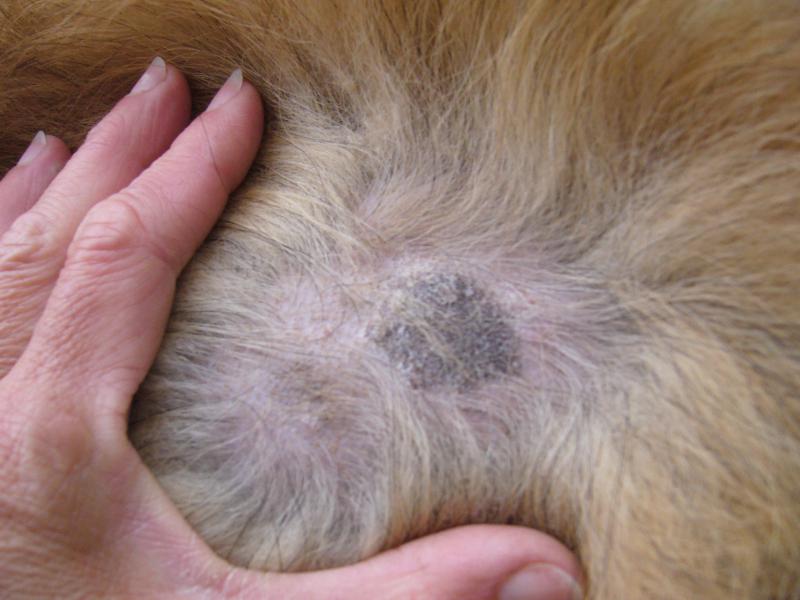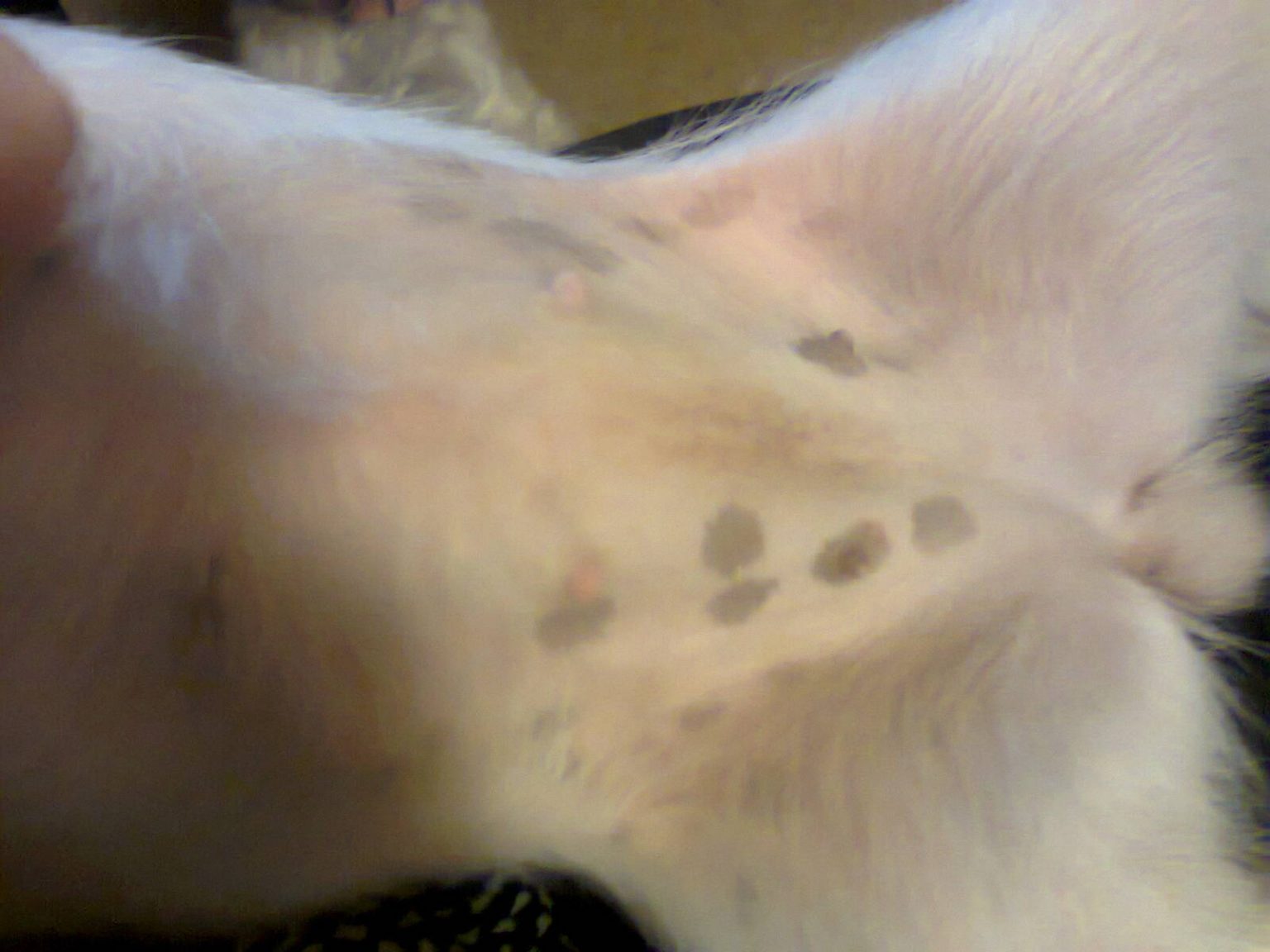My dog has black spots on his skin
Some owners are concerned about the appearance of black spots on their dog's skin, with or without other symptoms.
This phenomenon, called hyperpigmentation, can be associated with various benign or serious pathologies, which only a veterinarian will be able to diagnose in most cases. In order not to put your dog's health in danger, it is therefore necessary to know what these spots may be due to, and how to react when they appear.
Hyperpigmentation in dogs
Hyperpigmentation in dogs is a symptom and not a disease in itself. It occurs when the dog's skin becomes darker in places. Specifically, hyperpigmentation is hypermelanosis, which is an unusual concentration of melanin in certain areas of your dog's skin.
Melanin is a generic term for the biological pigments that color different organs of living beings, which are produced by different enzymes in a process called melanogenesis. Also, the dog's skin is not the only part of its body that can be colored by these pigments. Mucous membranes, hair and eyes are also sensitive to melanin.
Melanogenesis is a natural process, in which pigments migrate to the dog's hair and determine the color of its coat. In some cases, melanogenesis does not occur properly, resulting in hyperpigmentation or, conversely, hypopigmentation (albinism).
Animals with albinism (all white) are much rarer than those with melanism (all black). Hyperpigmentation can also occur on a few specific areas of the animal's skin, in which case black spots appear.

Causes of black spots on my dog
Hyperpigmentation in dogs can be the result of a variety of systemic disorders that vary in severity, but fortunately are usually benign. Common causes include skin diseases and hormonal imbalances. Recent or old trauma or parasites can also cause hyperpigmentation.
Dog skin diseases that cause dark spots
It is relatively easy to determine if your dog's hyperpigmentation is due to a skin condition. In this case, you will probably see many associated symptoms such as peeling (alopecia), puritus (itching) and possibly inflammatory lesions from scratching.
The fact is that skin that has been traumatized by repeated injury (such as recurrent scratching) is more likely to darken as it heals, which is why hyperpigmentation is common in skin conditions. Perhaps the most common of these skin conditions is Malassezia dermatitis, which is caused by a fungus that is constantly present on the dog's skin and suddenly begins to grow more than it should.
Malassezia dermatitis causes severe itching that will not go unnoticed by a careful owner. The dog's skin becomes irritated, red, pimples may form, then the skin becomes pigmented with black and thicker, adopting the typical appearance of an elephant skin.
This condition can be generalized and spread over a large part of the dog's dermis or remain very localized, without affecting its severity. It is a pathology that requires a veterinary visit, and only a rigorous treatment followed on the long term will get rid of this tenacious fungus.
Hormonal diseases in dogs that cause dark spots
Hormones play an important role in melanogenesis, so hormonal fluctuations can cause varying degrees of hyperpigmentation in dogs. Cushing's syndrome is caused by an overproduction of cortisol in the dog's body, a hormone involved in the mechanisms that regulate the body (appetite, sleep, blood sugar, immune system function, etc.).
In fact, this pathology has repercussions on the dog's entire body and can cause hyperpigmentation, often generalized. Hypothyroidism, a hormonal disease involving dysfunction of the thyroid gland, also impacts many body functions and can cause hyperpigmentation.
Hormonal diseases often require lifelong treatment, although this is only necessary when the consequences of the disease are serious, which is not always the case. Since Cushing's syndrome is often caused by a tumor, surgery may be considered to permanently resolve the problem.
Seeing black spots on your dog's skin is always worrisome, but fortunately, the underlying disease that causes them is often not serious.
The best thing to do is to consult a veterinarian who will rule out serious causes and suggest an appropriate treatment. If your dog has associated symptoms, such as hair loss, itching, dejection or any other worrying or unusual signs, it is important not to wait to consult a veterinarian.

